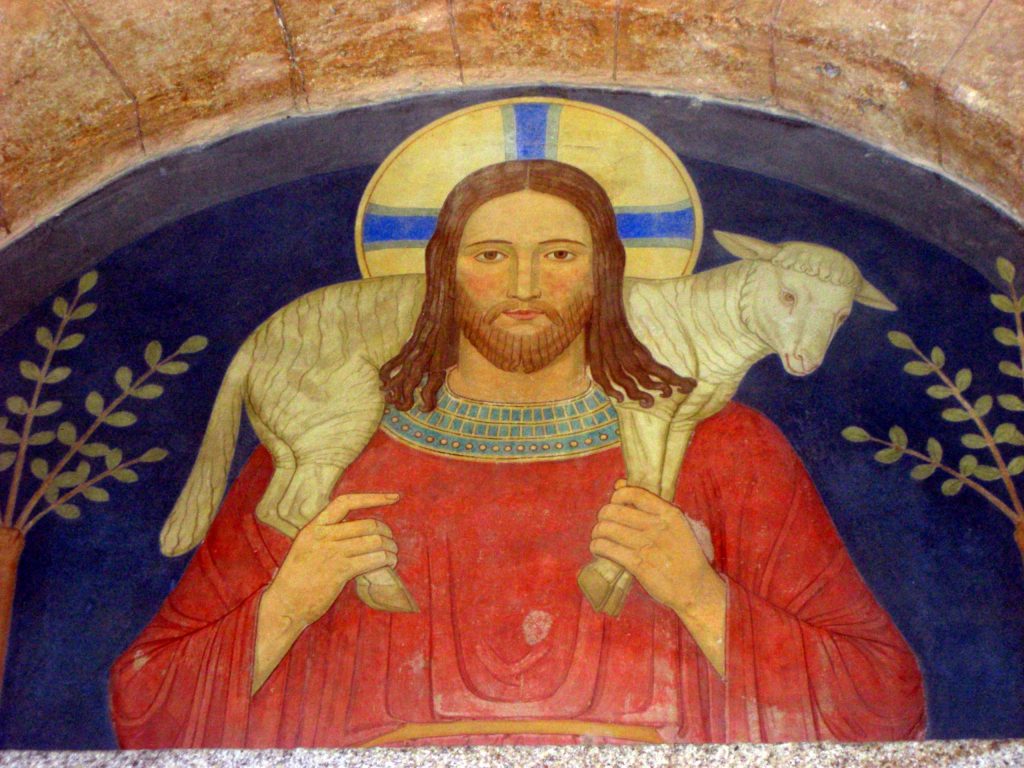Of the Measure of Food (XXXIX)

CHAPTER XXXIX. Of the Measure of Food
18 Mar. 18 July. 17 Nov.
We think it sufficient for the daily meal, whether at the sixth or the ninth hour, that there be at all seasons of the year two dishes of cooked food, because of the weakness of different people; so that he who perchance cannot eat of the one, may make his meal of the other. Let two dishes, then, suffice for all the brethren; and if there be any fruit or young vegetables, let a third be added. Let one pound weight of bread suffice for the day, whether there be but one meal, or both dinner and supper. If they are to sup, let a third part of the pound be kept back by the Cellarer, and given to them for supper. If, however, their work chance to have been hard, it shall be in the Abbot’s power, if he think fit, to make some addition, avoiding above everything, all surfeiting, that the monks be not overtaken by indigestion. For there is nothing so adverse to a Christian as gluttony, according to the words of Our Lord: “See that your hearts be not overcharged with surfeiting.” And let not the same quantity be allotted to children of tender years, but less than to their elders, moderation being observed in every case. Let everyone abstain altogether from the flesh of four-footed animals, except the very weak and the sick.
Saint Benedict provides “at all seasons of the year for two dishes of cooked food, because of the weakness of different people”. Propter diversorum infirmitatibus. Saint Benedict’s monastic family is not an exercitus (infantry division) from which the physically unfit are mercilessly excluded. In fact, some of the most valiant combattants in the struggle “against the rulers of the world of this darkness, against the spirits of wickedness in the high places” (Ephesians 6:12) are the weakest sive corporum sive morum, “whether of body or of mind” (Chapter LXII). The machinations of the devil are always undone by the humility and patience of the poor in spirit. The annals of monastic holiness are rich in accounts of monks, marked by diverse infirmities, who “by patience shared in the sufferings of Christ” (Prologue). The devil fears the Cross because it is his undoing. It disarms him. The sick monk who clings to the Cross may well be a bulwark for the whole community against the onslaughts of the devil.
Saint Benedict warns, nonetheless, against excess. Compassion for weaknesses is not a license for self–indulgence. Even when laid low by infirmity, the monk remains manly, practicing restraint and not taking advantage of his illness to indulge his whims. The sick brother will be tempted to let down his guard and indulge certain wants and fancies. Even the sick brother must practice moderation and restraint.
In treating of abstinence from the flesh of quadrupeds, the chapter, ends with the words, praeter omnino debiles aegrotos, “except the very weak and the sick”. Our father Saint Benedict’s attention to the weak, the sick, and the neediest among the brethren, reveals the Heart of Christ the Good Shepherd.
The lost sheep I will find, the strayed sheep I will bring home again; bind up the broken limb, nourish the wasted frame, keep the well-fed and the sturdy free from harm; they shall have a true shepherd at last. (Ezechiel 34:16)
The light of the adorable Face of the Divine Physician shines through every page of the Holy Rule. Saint Ambrose, in his exposition of Saint Luke’s Gospel articulates in a magnificent prayer the groans of every man in the grip of illness:
Thee alone I follow, Lord Jesus, Who heals my wounds. For what shall separate me from the love of God, which is in Thee? Shall tribulation, or distress, or famine? I am held fast as though by nails, and fettered by the bonds of charity. Remove from me, O Lord Jesus, with Thy potent sword, the corruption of my sins. Secure me in the bonds of Thy love; cut away what is corrupt in me. Come quickly and make an end of my many, my hidden and secret afflictions. Open the wound lest the evil humour spread. With Thy new washing, cleanse in me all that is stained. Hear me, you earthly men, who in your sins bring forth drunken thoughts. I have found a Physician. He dwells in heaven, and distributes His healing on earth. He alone can heal my pains Who Himself has none. He alone Who knows what is hidden, can take away the grief of my heart, the fear of my soul: Jesus Christ. Christ is grace, Christ is life, Christ is Resurrection. Amen.
